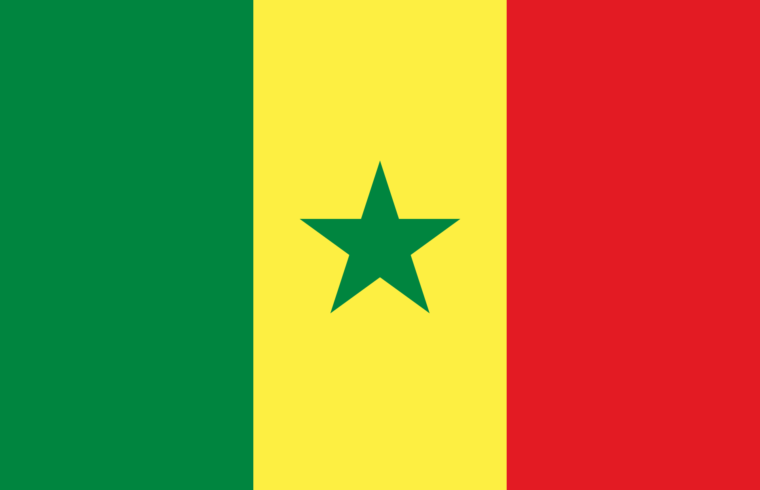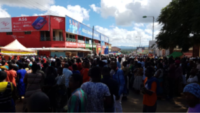PhD student English and Comparative Studies Cheikh Anta Diop University (UCAD)- Dakar Sénégal
„Sénégal: Distance Education Due to the Coronavirus“
As we have all seen, coronavirus is an epidemic that generally causes mild respiratory tract infections, such as the common cold. Very contagious, coronavirus spreads quickly with high mortality risks for some people. Second sub-saharan country, after Nigeria, Senegal has announced its first confirmed case of coronavirus since March 26. Since, the disease has become a threat to the human species to such an extent recommendations have been made and measures taken.
The president of the republic decided to close the creches, schools and universities until further notice since March 16. Thousands of students have deserted campuses, such as the university of the capital city (UCAD), which usually brews close to 90 000 students from all over West Africa.
However, what makes distance education particularly difficult in Senegal is that digital technology is not promoted enough to accomodate pupils and students, in terms of distance education, our county is therefore very poorly prepared not only for university training but also and above for middle and secondary education.
I) Tele-education to compensate for the absence of courses
Faced with the Covd-19 epidemic, classes are suspended and the initiative ‘‘ learn at home’’, allows for distance learning. Lessons are given in the form of a video and broadcast on the internet. The video can be reproduced by any tv or digital platform that so wishes.
‚‘Télé-école’’, an educational and school television station, has fully made available to the Ministry of National Education all the equipment, tv studios and recording materials necessary to transmit daily lesson videos for students. The teams of teachers mobilized wait their turn to record or give lessons in front of the cameras.
These courses are certified by a commission, broadcast on the portal www.tele-ecole.tv and synchronized on Youtube. Teachers are assigned by the Ministry of National Education.
II) Ethical Dilemma
Other distance learning initiatives are developing and we should welcome it. Television spaces are offered for teachers to share their knowledge with pupils on a voluntary basis.
But, as everywhere, there is a flagrant problem of equity. Students living in areas where the internet leaves something to be desired, or where there is a glaring lack of electricity, will not have access to its content. Others do not even have computers.On March 25, Beghdad Kamel commented on a website to emphasize that : ‘‘We would have liked to have simple explanations to our children’s program courses like such day on such chain and at such time you you will have course…with the level’’(au-senegal.com)
III) An almost Missed Educational Year
To take the lead in the face of intoxication and disinformation, the Senegalese state has also decided to go on a crusade against unfounded rumors. The Minister of Health, Abdoulaye Diouf Sarr, has annouced legal proceedings against those who undermine the national effort to fight the coronavirus.
The decision was made to comply with state directives but for Abel Sagna, the bottom line remains the lifestyle of the Senegalese: „Our culture promotes the speed of spread of the disease. We greet each other by the hand, we eat together we drink tea together, we are almost always together“(RTS/News), says this young father. For him, the very social model of Senegalese society is „very favorable to the spread of the disease“.
Today, the largest religious city in Senegal has become a home for the coronavirus. And we did hear the president follow in an interview stressing that he ‘‘ does not advocate general curfew’’ (information.tv5monde.com)
The first obstacle relates to the availability of the tool, in this case the internet. Senegal is not provided with a connection over the entire extent of its territory. To stop the reinforcement of this digital divide, it is imperative for the state to make internet access a reality.
Recent events have shown us (again) how rapidly a new disease can take root and spread. Elsevier is a website that opens whatever resources possible to public health authorities:
‘‘We provide continually updated resources span scientific and medical journals and textbooks, educational products and a new R&D tool. We have also created an interactive global map of experts based on Scopus data.’’(www.elsevier.com)
Bibliography
World Health Organization. ‘‘Global Research on Coronavirus Disease’’. www.who.int
HESSEN, Margaret, T. ‘’Novel Coronavirus Information Center’’. April 17, 2020. www.elsevier.com
GAYE, Ababacar. Covid-19/Sénégal : « les grosses difficultés pour sauver l’année scolaire et les obstacles à la télé enseignement ». 05-March-2019. www.Senenews.com
DIALLO, Oumy. « Coronavirus en Afrique : quels sont les pays impactés? ». 19/04/2020. www.nformation.tv5monde.com
Chronique de RTSreligion. Au Sénégal, lutter contre le Covd-19 passe par les autorités musulmanes. 23/03/2020. www.rts.sn
Par le departement de la communication globale. « Covid-19 : l’Afrique à deux semaines pour contenir la propagation, selon l’OMS ». www.un.org









